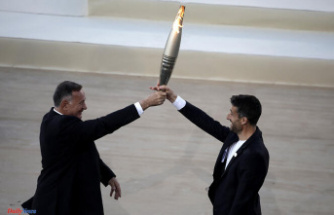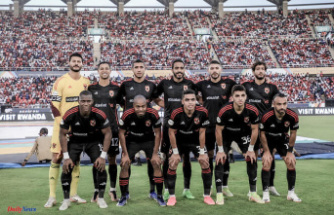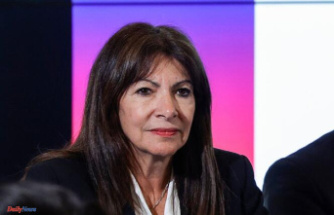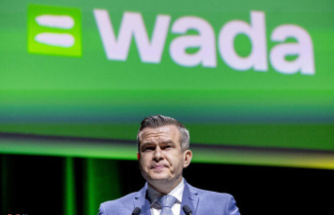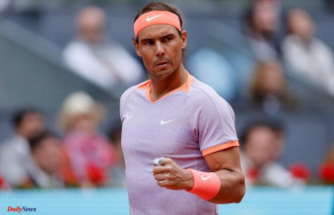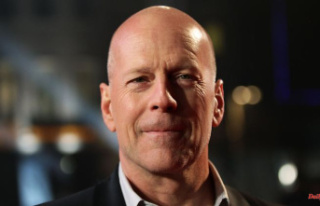Hertha BSC apparently had to look for a new bank: As the "Financial Times" reports, Deutsche Bank terminated the Bundesliga soccer club's accounts - because of Hertha's majority investor Lars Windhorst.
When Lars Windhorst, the former investment prodigy of the republic, announced in 2019 that he would take over shares in Hertha BSC, it caused mixed feelings in those around the Bundesliga soccer club. Skepticism about the investor, who was convicted of "disloyalty" in 2010, but also anticipation of a possible upswing that had been hoped for because of the many, many millions of euros from Windhorst's Tennor Holding. In several steps, Tennor equipped the clammy capital city club with 374 million euros.
Now it has become known: Hertha BSC also had to look for a new bank because of Windhorst. The "Financial Times" reports, citing "four people familiar with the matter", that Deutsche Bank has separated from its long-term customer Hertha BSC - "because of the Bundesliga soccer club's connections to Lars Windhorst". The step is a reaction to the newspaper's reporting that the Berlin public prosecutor's office is investigating Windhorst for possible violations of the banking law after the German financial supervisory authority BAFIN had filed a criminal complaint.
Concrete indications of possible misconduct did not lead to the decision, wrote the "Financial Times", but the monitoring of the transactions had caused too much effort in relation to the income generated with the club accounts. Payments by the Tennor Group to Hertha BSC GmbH are to be made via accounts at Deutsche Bank
The move is now a consequence of Deutsche Bank's tightened anti-money laundering controls. She is under pressure after she was publicly reprimanded by the BAFIN over several scandals.
According to the "Financial Times", Windhorst is also said to have exchanged Whatsapp messages with Deutsche Bank CEO Christian Sewing. This type of communication is prohibited under regulatory rules. At the end of September, Deutsche Bank, one of several well-known financial institutions, was sentenced to a fine of 200 million dollars.
"Deutsche Bank has fully cooperated with the supervisory authorities on this industry-wide issue," said a spokesman for Germany's largest financial institution in Frankfurt. "It is unclear whether Sewing's messages with Windhorst were part of the US regulators investigation, since Windhorst himself was never a customer," wrote the Financial Times. People familiar with the matter "said its content was not business related."
Windhorst's commitment to Hertha BSC has long since failed. An absurd episode with Jürgen Klinsmann, installed by Windhorst, will remain in memory of the time together, who had switched from the supervisory board to the coaching bench and then quickly made off. In terms of sport, a relegation that was narrowly avoided in the relegation was already a sign of success. Windhorst was recently confronted with allegations of having commissioned an alleged campaign by an Israeli security company against former Hertha President Werner Gegenbauer. The investor rejected the allegations as "nonsense", Hertha had commissioned a Berlin law firm to work through the process and asked Windhorst to provide a "detailed statement".
The new Hertha President Kay Bernstein, successor to the resigned Werner Gegenbauer, named "the break with Tennor" as the goal of his activities in a conversation, Windhorst recently announced. Under these conditions, further cooperation for the benefit of Hertha BSC is ruled out, economic and sporting goals cannot be achieved in this way, "and the essential basis of our commitment to Hertha BSC has been destroyed". He wanted to offer the club to “buy back” its majority shares “at the purchase price at the time”.


